
The Free Press

Today from The Free Press: Ben Kawaller meets the Mormons, Lionel Shriver on PEN, and Trump on trial. But first, Suzy Weiss on the fracas at Columbia:
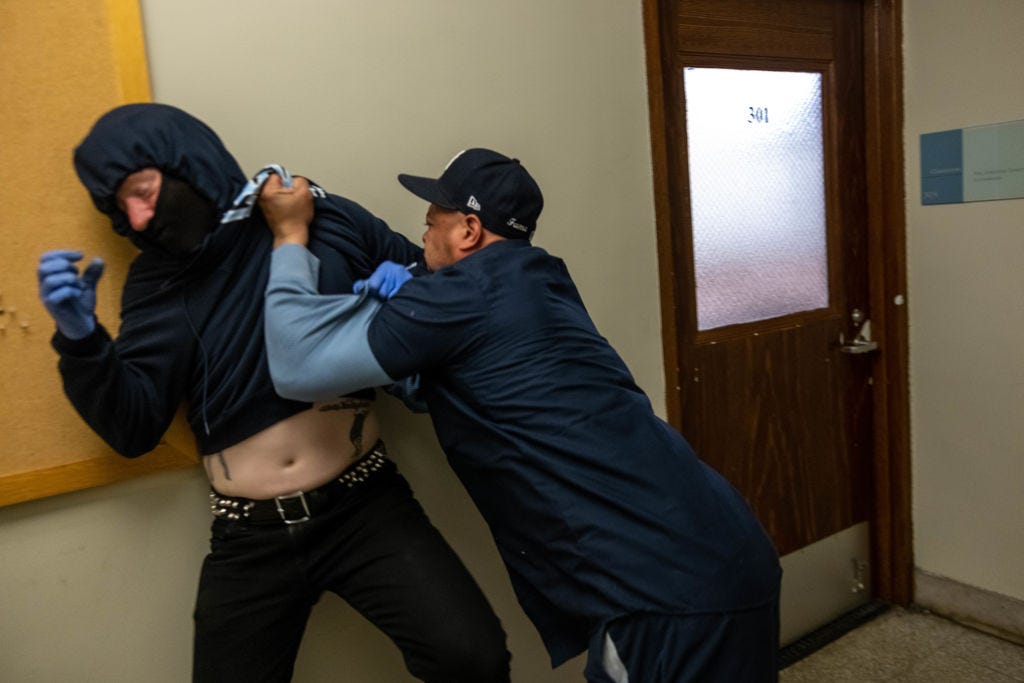
Last night around 9 p.m., NYPD cops in riot gear descended on Columbia to, depending on your view of the matter, clear—or liberate?—Hamilton Hall, which had been occupied by protesters some 20 hours prior.
The cops made quick work of the blockaded building: within two hours dozens of people were arrested.
“For the individuals that are inside the Hamilton Hall building,” said the NYPD’s Deputy Commissioner of Operations Kaz Daughtry at a press conference, they’ll be “charged with burglary in the third degree, criminal mischief, and trespassing.” As for the protesters in outdoor encampment, he suggested they would be charged with “trespassing and disorderly conduct.”
Last night’s raid comes after a nearly two-week-long encampment, in which Columbia students and assorted others have chanted vigorously and danced interpretatively. They also painted their nails, made friendship bracelets, and made sure to have sufficient supplies of gluten-free bread. (Read Olivia Reingold’s report, “Camping Out at Columbia’s Communist Coachella.”)
Save some pesky details—like, say, the chants for globalizing the intifada (a call for globalizing a campaign of terror aimed at killing Jews); telling Jewish students to “go back to Poland; and, in at least one case, assaulting a student—the encampment was just kids being kids. Indeed, if you asked the likes of Ilhan Omar and AOC, both of whom made pilgrimages, these students explicitly cheering for Hamas weren’t pro-war at all—they were standing against genocide and for liberation.
That position became less tenable after protesters smashed windows with a hammer, occupied Hamilton Hall, and started fighting with Columbia employees.
A now-viral photograph (above) shows one of the college’s lowest paid workers—a janitor making around $19 an hour—fighting back against a member of the mob. Contrast that with this video, in which one of the protest leaders demands “humanitarian aid”—i.e., snacks—for those who’ve laid siege to the building.
It was a tale of two Columbias.
The janitor captured in the photograph on Monday night still has not been identified. But yesterday, two members of Columbia’s maintenance crew said the man should sue the college.
“Half these kids don’t even know what they’re protesting for, they just want to be part of the fad,” one janitor, who did not want to be identified, told The Free Press. “I would fucking sue if I was him.”
Another maintenance worker with a 19-year-old daughter in college said, “If I were a parent of one of the graduating seniors, I would say fuck this, I want my money back.” Columbia’s tuition ranges from $50,000 a year for graduate students to $90,000 a year for undergrads.
Meanwhile, a PhD student named Johannah King-Slutzky spoke to the press about students’ demands, which included catering. When a reporter asked her, “Why should the university be obligated to provide food to people who have taken over a building?” King-Slutzky replied, “First of all, we’re saying they are obligated to provide food to students who pay for a meal plan here.” Which is sort of like saying that if a restaurant can’t deny you service, the chef is obliged to come cook in your apartment—except you’ve stormed the chef’s apartment, and now you want him to cook you dinner there.
“I guess it’s ultimately a question of what kind of a community and obligation Columbia has to its students,” King-Slutzky reflects. “Do you want students to die of dehydration and starvation or get severely ill even if they disagree with you?” So like, is it possible that they could get just a simple glass of water? With three lemons? And a Caesar salad with dressing on the side? Thankssomuch!
King-Slutzky, whose thesis is on “theories of the imagination and poetry as interpreted through a Marxian lens” and the “fantasies of limitless energy in the transatlantic Romantic imagination from 1760–1860,” and whose fantasies are indeed limitless, goes on: “It’s crazy to say because we’re on an Ivy League campus, but this is like basic humanitarian aid we’re asking for.” In another video, she calls on members of the public to “hold Columbia accountable for any disproportionate response to students’ actions.”
You’d think with all this talk of proportionality and humanitarian aid that she’d be discussing the war in Gaza. But she means the war in Hamilton Hall. In Manhattan.
Meanwhile, two Columbia students captured footage of the late-night break-in for The Free Press, which you can watch here:
Their video captured professional protester Lisa Fithian, 63—a later-in-life learner?—directing the barricade. Fithian, it turns out, is a “protest consultant” paid by union and activist groups to teach their members tactics for taking over the streets. Known as “Professor Occupy,” she’s been arrested between 80–100 times and was seen on Monday instructing protesters how to block doors and also calling two Jewish students, who tried to intervene, “assholes.”
While the mob that broke in were masked, a number of them were visibly older than the students. Perhaps some of these more experienced activists smuggled in some wraps before the paddy wagon arrived.
Additional reporting from Francesca Block.
For further reading:
Where does free speech end and law-breaking begin? Constitutional scholar Ilya Shapiro explains.
We also found University of Chicago president Paul Alivisatos’s letter on protests and encampments at his school to be an excellent example of that distinction in action.
Last week, PEN America—the nonprofit dedicated to free expression for writers—was forced to cancel its book festival and awards. Why? You guessed it! Because writers demanded the organization denounce Israel’s war in Gaza as genocide—and then walked out en masse when their demand was refused. Here’s the razor-sharp novelist Lionel Shriver on the “intellectual acrobatics” of today’s progressive writers:
Another day, another opportunity for huffy, hypocritical “progressive” posturing. PEN America has now been forced to cancel its World Voices literary festival in New York and L.A., on the heels of also canceling its 2024 awards ceremony. Too many authors had withdrawn from both events to make going ahead with staging either practicable. The reason for so many writers flouncing from these programs? PEN’s failure to publicly denounce Israel’s “genocide” in Gaza. But you had probably guessed the point of indignation already, because as of October 2023, the Anglosphere’s far left has neatly pivoted from the infantilization of black people to the Palestinian cause with the coordinated grace of a synchronized swimmer.
To clarify: the purpose of PEN is to defend freedom of speech and to protect writers from political oppression and persecution. It makes perfect sense, therefore, that a significant cadre of its membership would seek to stifle freedom of speech and engage in political oppression and persecution. Or: we’re all for free speech so long as you say what we tell you. These folks are athletes. It requires considerable intellectual acrobatics for Writers Against the War on Gaza to regard the shutting down of events to advance free expression as “a win for free expression.” Presumably, the fact that a number of withdrawals from both occasions were motivated by fear of being attacked by a mob of pro-Palestinian zealots is also “a win for free expression.”
The U.S. DEA is set to reclassify marijuana as a less dangerous drug. It is currently a Schedule I drug, alongside heroin and LSD, and the change is the agency’s biggest policy shift in 50 years. (AP)
A majority of Americans (55 percent) think Donald Trump has committed crimes; 57 percent think Donald Trump is the victim of “lawfare”; and 53 percent think Trump’s legal cases make it impossible for Trump to be a viable candidate for the Oval Office. (The Hill)
Think America had nailed the soft landing? Think again. Ahead of a Fed rates decision this week, economist Michael R. Strain argues that recession and stagflation are back on the cards. (Project Syndicate)
No wonder American consumers are gloomier than they have been at any point in the last two years. The consumer confidence index dropped for the third straight month in April. (Axios)
Adding to the good news, global jihadists are back on the march. Islamic State is resurgent in Afghanistan, and France has scaled back its plans for the Olympic opening ceremony this summer to limit risk of attack. (The Economist)
German Chancellor Olaf Scholz is trying to preserve his country’s special relationship with China. This line sticks out: “The dismantling of globalization and the breakup of the world into adversarial trading blocks will be the most expensive thing anyone has ever done.” (Euro Intelligence)
Sex is a biological fact, according to Britain’s National Health Service, which is reversing guidance from 2021 that allowed trans patients to be placed in single-sex wards according to their gender. It’s only the latest sign that peak trans has passed—at least in Britain. (The Telegraph)
Pour one out for the class of 2024, which entered college in a pandemic, is leaving amid protests, and missed out on the fun. “The share of students saying they’re disabled, for example by anxiety or learning issues, climbed roughly 23 percent between 2019 and 2021.” (WSJ)
You might think that vegetarian and friend of The Free Press Jesse Singal would be opposed to Kristi Noem shooting her dog. But no! He offers a (partial) defense of the North Dakota governor. (Singal-Minded)
NYU business professor Scott Galloway has said he thinks protesting is the “new sex” for young Americans. One of the “community guidelines” at George Washington University’s encampment is “no sexual relationships,” but surely the average young American is more interested in action in the sheets than activism in the streets. (CNN)
For the latest stop on his nationwide quest to bust stereotypes, break down the walls of American tribalism, and keep the nation going at least through the 2024 election, Ben Kawaller heads to Salt Lake City for the big annual powwow of the Church of Jesus Christ of Latter-day Saints.
As a gay teen in the early aughts, raised atheist in Brooklyn among folks who could handle a bit of sexual deviance, I neatly divided people into good and evil based on whether or not they supported gay rights. So if you’d asked me back then what I thought of the Church of Jesus Christ of Latter-day Saints, I’d probably have trashed the lot of them. It wasn’t just their opposition to gay marriage; it was also their origin story, which I’d of course learned from a 2003 episode of South Park.
In recent years, though, I’ve come to view the LDS with greater charity. Their productivity alone is to be admired—just check out this guide to managing your time, which may be the most useful piece of liturgy ever published. Is it any wonder these guys produced the last normal Republican presidential nominee? I can barely plan dinner, let alone “set goals”; who am I to judge?
So when I heard the LDS General Conference was coming up, I knew I had to book a flight to Salt Lake City. “Ben Meets America!” is all about communicating across cultural divides, and I thought there might be some interesting friction between the LDS community and me. Plus, I wanted to poke the tension between seeing one’s religion as literal truth and seeing it as a useful way of understanding a complicated world.
As it turned out, though, the most dogmatic folks around the conference center were not LDS members, but a group of evangelical Christians who alighted on the scene to inform attendees that they were risking damnation by following a prophet, or attempting to get to heaven by doing good works. “I would be a cruel person not to warn them,” one protester told me.
Next to these fire-and-brimstone types, I felt an unexpected alignment with the LDS. Their focus on a personal, loving relationship with Jesus Christ seems positively liberating; their audacious commitment to the Book of Mormon in the face of mainstream derision seems oddly heroic.
Also, in recent years the LDS Church has softened up on the gays. If anything, the people I spoke with seemed slightly embarrassed by its teachings on homosexuality, just as I am embarrassed by my erstwhile views about their beliefs.
It seems we’ve all grown more tolerant of deviance. In the Book of Ben, anyway, that counts as a win.
Missed a previous installment of “Ben Meets America!”? Catch up here.
→ Trump on trial—in court and in the press: It was a mixed day for Trump at his New York trial Tuesday. On the one hand, Judge Juan Merchan found that nine of the former president’s social media posts had violated a gag order barring him from any attacks on jurors or witnesses. On the other hand, he was fined only $1,000 per post. (I’m starting to wonder if social media would be a better place if we all had to pay to post.) The judge also agreed to suspend the trial for a day later this month so that Trump can attend his son Barron’s high school graduation. So all in all, not a bad day in court?
Meanwhile, in the court of public opinion, Trump watchers were poring over a big new Time magazine interview with the once (and future?) president about what a second Trump term might look like. Trump talks at length about his plans and the piece paints a picture of a candidate determined not to get bogged down in the swamp the second time around. “Trump remains the same guy, with the same goals and grievances. But in person, if anything, he appears more assertive and confident,” writes Time’s Eric Cortellessa. Trump’s comments on the possibility of political violence if he loses are making headlines. “If we don’t win, you know, it depends,” he told Time. “It always depends on the fairness of the election.”
Tellingly, it’s both Trump’s most ardent opponents and his own team who seem most interested in the interview. Here’s his 2016 opponent Hillary Clinton:
And here’s Trump spokesman Jason Miller:
It’s only the latest example of the strange symmetry in this campaign, with committed Trumpers and anti-Trump hard-liners both of the view that a Trump win would mean a radical departure not just from the Biden presidency but also Trump’s first term. They differ, of course, on whether that will be the end of American democracy as we know it or a much-needed course correction.
→ Debt ‘cancellation’ is very, very expensive: The problem with really big numbers is that, beyond a certain size, it’s impossible to wrap your head around them. After the sixth zero, my eyes glaze over. Sadly, this isn’t a problem when I check my bank balance, but it is an issue when it comes to the cost of Joe Biden’s debt cancellation plans.
That’s why a new study by the Committee for a Responsible Federal Budget, which added up the total cost to taxpayers of these write-offs, is so useful. They estimate the total cost will be somewhere between $870 billion and $1.4 trillion, which is “more than all federal spending on higher education over the nation’s entire history.” (Our emphasis.) As CRFB notes, it’s also more than all educational appropriations for the next decade ($935 billion), more than the cost of providing universal pre-K and universal affordable childcare ($750 billion), and more than the cost of tripling the Pell Grant program ($675 billion). The cherry on top is how poorly targeted this scheme is—with the benefits mostly going to the richer half of the country. Another recent analysis found that at least 750,000 of the households having their student debt cleared by the rest of us are “making over $312,000 in average household income.” Money well spent, everybody.
Here are two more staffer recommendations today, before we open up to you wonderful people tomorrow.
Freya Sanders recommends these “insanely addictive” train track puzzle books: Everyone I’ve introduced them to has become obsessed. They are so good for quieting the mind after a day spent being Very Online. Best done with pencil and paper, not digitally, while listening to a Jane Austen audiobook. Or Honestly, obviously.
Jana Kozlowski recommends her household’s cold remedy: Based on a sample size of my husband and me, the following protocol at first sign of a cold works better than anything from the pharmacy. 1. Vindaloo or similar very spicy curry with kombucha of any flavor. 2. Uncomfortably hot bath, 30–60 minutes. 3. Twelve hours of sleep (don’t have to sleep the whole time, but must stay in bed the whole time).
Send us your recommendations—for unplugging, recovering from a cold, or whatever else—to thefrontpage@thefp.com.
Oliver Wiseman is a writer and editor for The Free Press. Follow him on X @ollywiseman.
To support The Free Press, become a paid subscriber today:
And if you’re enjoying The Front Page, consider forwarding it to someone else you think might like it.


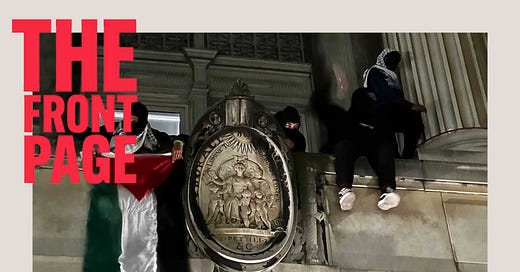




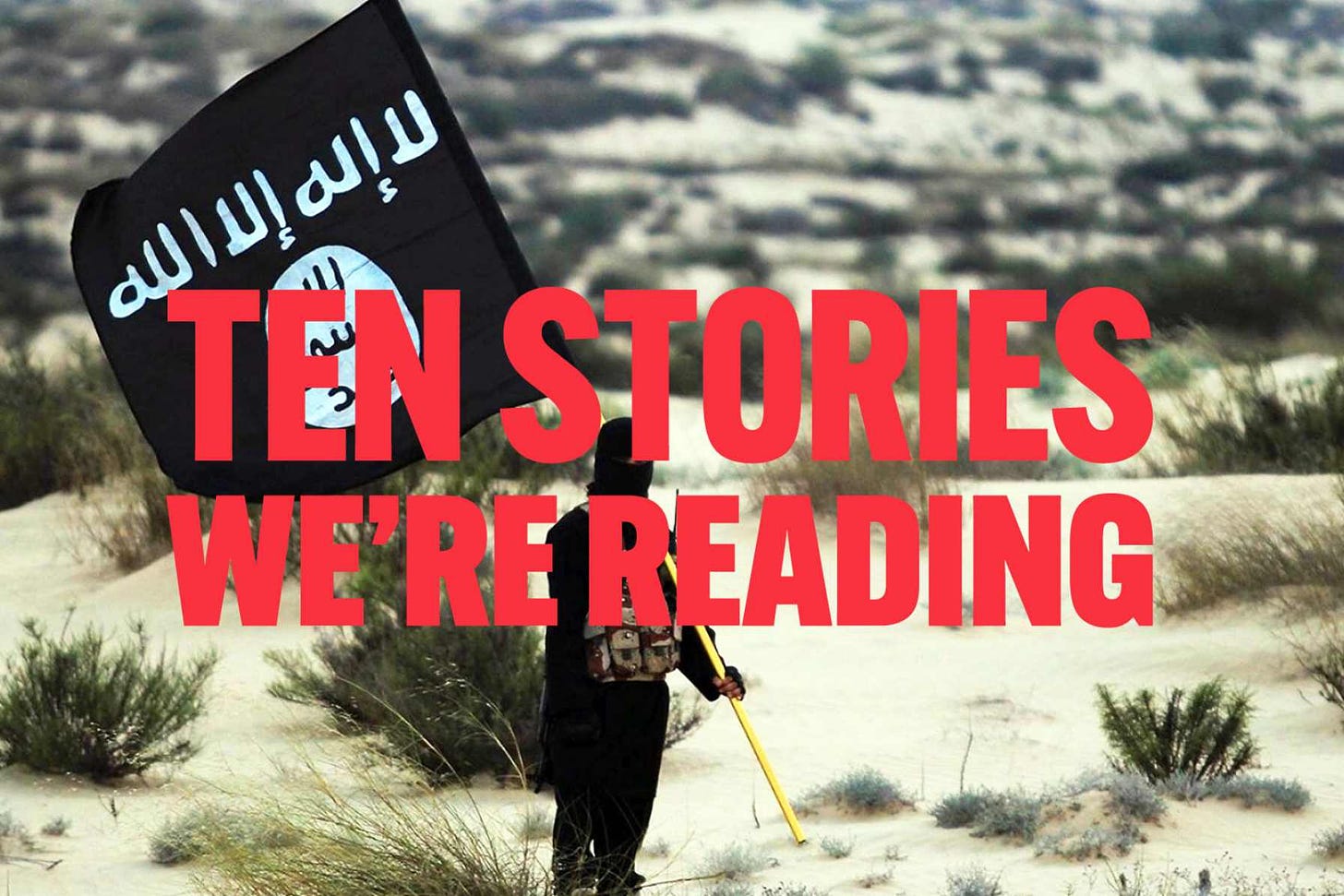




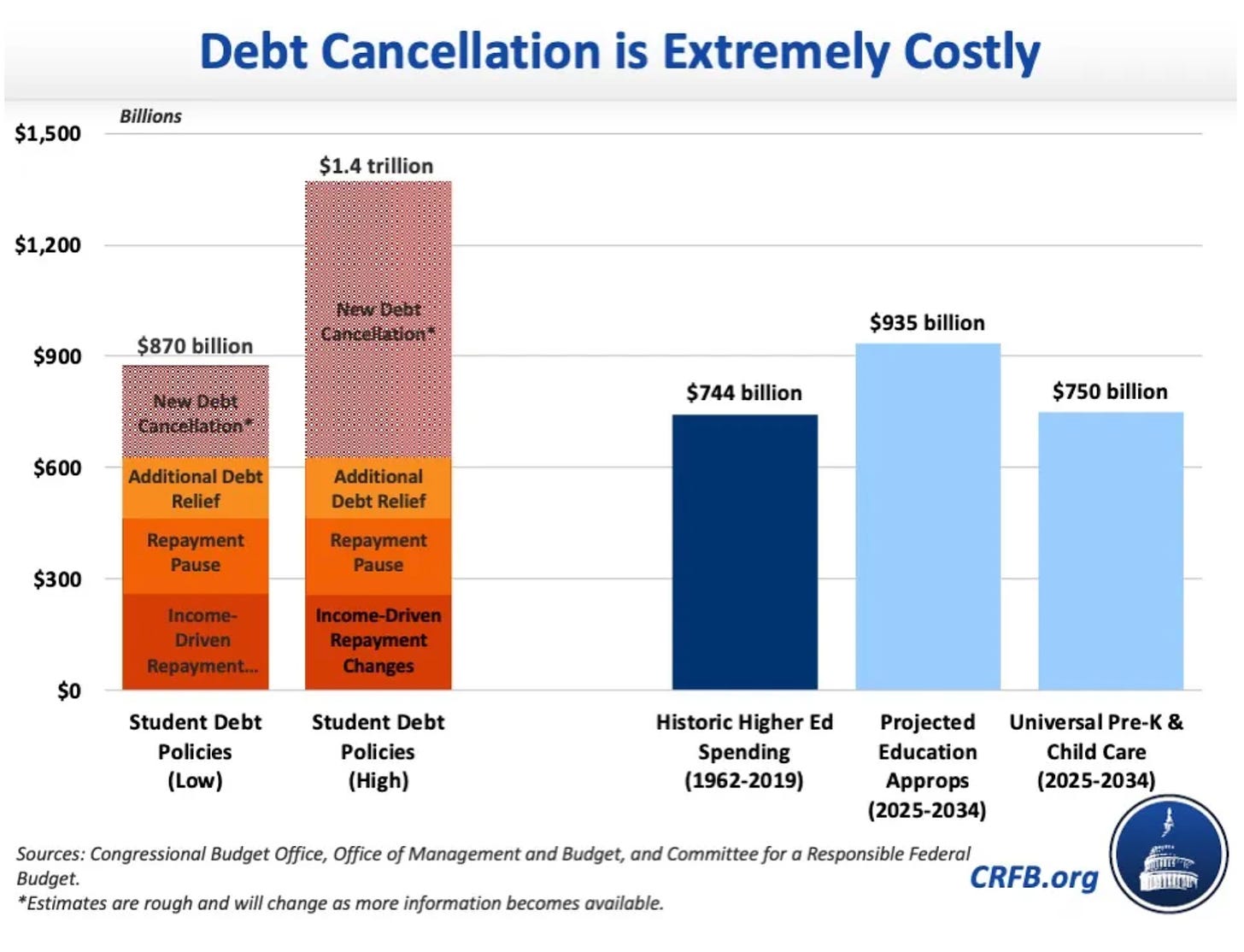



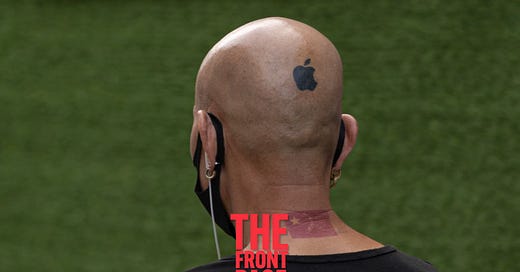

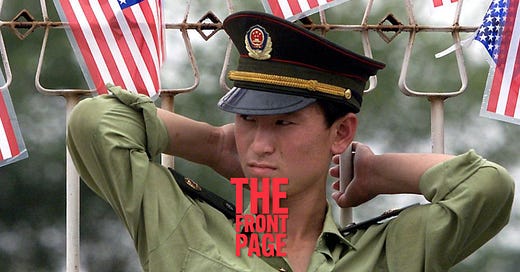

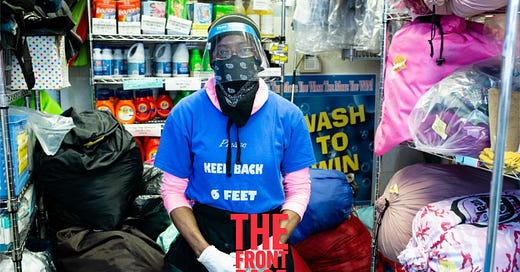




I'm not so sure it's a bad thing that college students won't have to pay for their time in school. It's not like they're getting an education. They come out of it dumber than when they went in. Let his be a lesson to America: If you want kids to pay their way through college, give them an actual education! ;/
Another A+ Ben Meets America! He is a great street interviewer. Kind, funny, and smart.